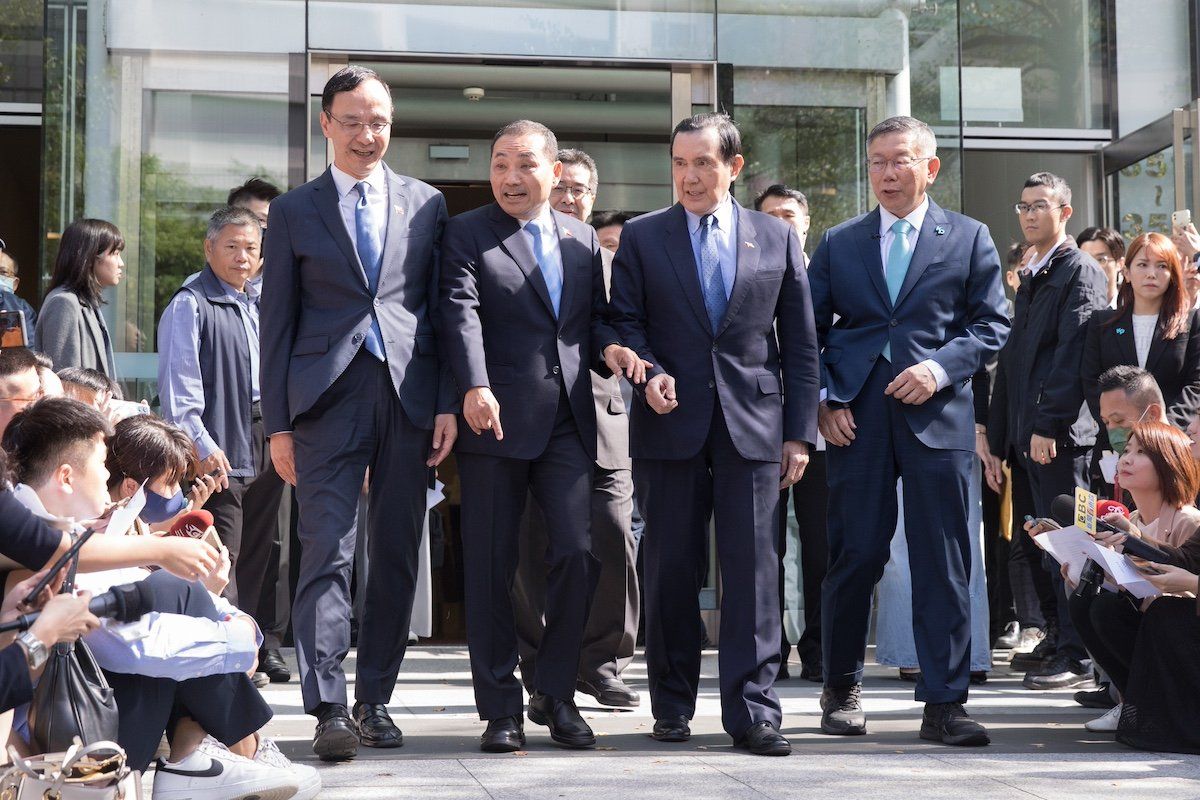The two main Taiwanese opposition parties are deadlocked over how to interpret the polls that will determine which of their preferred presidential candidates squares up against incumbent party candidate William Lai in January. If they don’t reach an agreement by Wednesday — it’s looking unlikely — Lai’s probable victory will likely raise tensions across the Taiwan Strait and pose problems for the US-China relationship.
Last week, the Kuomintang Party, backing Hou Yu-ih, and the Taiwan People’s Party, backing Ko Wen-je, announced an agreement by which one of the two men would bow out based on the results of public and internal polling. Doing so would prevent splitting the opposition vote and put Lai under serious pressure. However, by Sunday, each side was squabbling about which specific polls merited inclusion and how to measure the margin of error.
There’s still a chance they can smooth it out, but they’ll need to act fast, says Eurasia Group Taiwan expert Ava Shen. The candidates need to be registered by Friday to be on the ballot come January.
Should they fail, Lai’s chances of winning remain high, much to the chagrin of officials in Beijing who would prefer the more dovish cross-strait policies of either Hou or Ko. Lai’s recent announcement that Hsiao Bi-khim, Taiwan’s former representative to the US, will be his running mate has done nothing to alleviate Beijing’s concerns. Hsiao was deeply involved in organizing former House Speaker Nancy Pelosi’s visit last year, which infuriated China and caused a major rupture in US ties.
“[Hsiao’s] nomination has further convinced Beijing that this is not a government that Beijing could work with if they come to power,” said Shen. “And, in turn, Beijing would perceive more utility in cranking up the pressure on Taiwan through military means and through economic coercion measures.”
